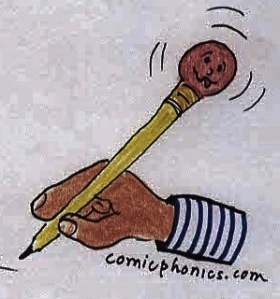Are you looking for good ways to start novels? If so, here are some great models.
If you want to foreshadow:
 A crisis in a marriage caused by a man’s casual affair is how Leo Tolstoy begins Anna Karenina, a novel whose introduction is considered by many to be the best ever written. Ultimately, the couple reconcile, with their affair acting as a comparison to Anna’s affair later in the novel. Because the comparison is not a direct, and because it involves Anna’s brother, it is all the more compelling.
A crisis in a marriage caused by a man’s casual affair is how Leo Tolstoy begins Anna Karenina, a novel whose introduction is considered by many to be the best ever written. Ultimately, the couple reconcile, with their affair acting as a comparison to Anna’s affair later in the novel. Because the comparison is not a direct, and because it involves Anna’s brother, it is all the more compelling.
If you want to highlight a first person point of view:
Start with a character who reveals his personality with a bang, such as Holden Caufield in The Catcher in the Rye by J. D. Salinger. “If you really want to hear about it, the first thing you’ll probably want to know is where I was born, and what my lousy childhood was like, and how my parents were occupied and all before they had me, and all that David Copperfield kind of crap, but I don’t feel like going into it, if you want to know the truth.” From this first sentence we know this is a kid with an attitude, and we are hooked.
Or how about Huck Finn’s opening comment in Mark Twain’s The Adventures of Huckleberry Finn? “You don’t know about me without you have read a book by the name of The Adventures of Tom Sawyer; but that ain’t no matter.” The poor English hints at Huck’s lack of education and perhaps backwoods roots. So much is revealed about the protagonist in one sentence.
If you want to capture tone:
If the tone is satirical, start with a satirical statement, such as Jane Austen does in Pride and Prejudice. “It is a truth universally acknowledged, that a single man in possession of a large fortune, must be in want of a wife.” Must be? Acknowledged by whom? We can expect wit, comic characters and a happy ending–a marriage. This introduction is considered a classic.
If the tone reveals the misery of life, layer it on as does Frank McCourt in the third paragraph of Angela’s Ashes. “People everywhere brag and whimper about the woes of their early years, but nothing can compare with the Irish version: the poverty; the shiftless loquacious alcoholic father; the pious defeated mother moaning by the fire; pompous priests; bullying schoolmasters; the English and the terrible things they did to us for eight hundred long years.”
If the tone is mystery, Edith Wharton in Ethan Frome nails it. “I had the story, bit by bit, from various people, and, as generally happens in such cases, each time it was a different story.” Not until the second last word of the sentence do we realize where the author is going, and we are hooked.
If you want to focus on an important symbol or motif:
Ray Bradbury’s Fahrenheit 451 immediately talks about fire, but with a twist. “It was a pleasure to burn.” This seems like a contradiction. Is the narrator an arsonist?
If you want to describe a character:
Joseph Conrad, in Lord Jim, starts with a powerful character sketch. “He was an inch, perhaps two, under six feet, powerfully built, and he advanced straight at you with a slight stoop of the shoulders, head forward, and a fixed from-under stare which made you think of a charging bull.”
If you want to rattle the reader:
See how L. P. Hartley does it in The Go-Between. “The past is a foreign country; they do things differently there.” Comparing the past with a foreign country provokes thoughtfulness, but then the writer compounds the mystery with the second clause.
Or see how Charles Johnson does it in Middle Passage. “Of all the things that drive men to sea, the most common disaster, I’ve come to learn, is women.” A woman is a disaster? Even if you disagree, you want to find out why the narrator believes this is so.





Great ideas and examples!
LikeLike